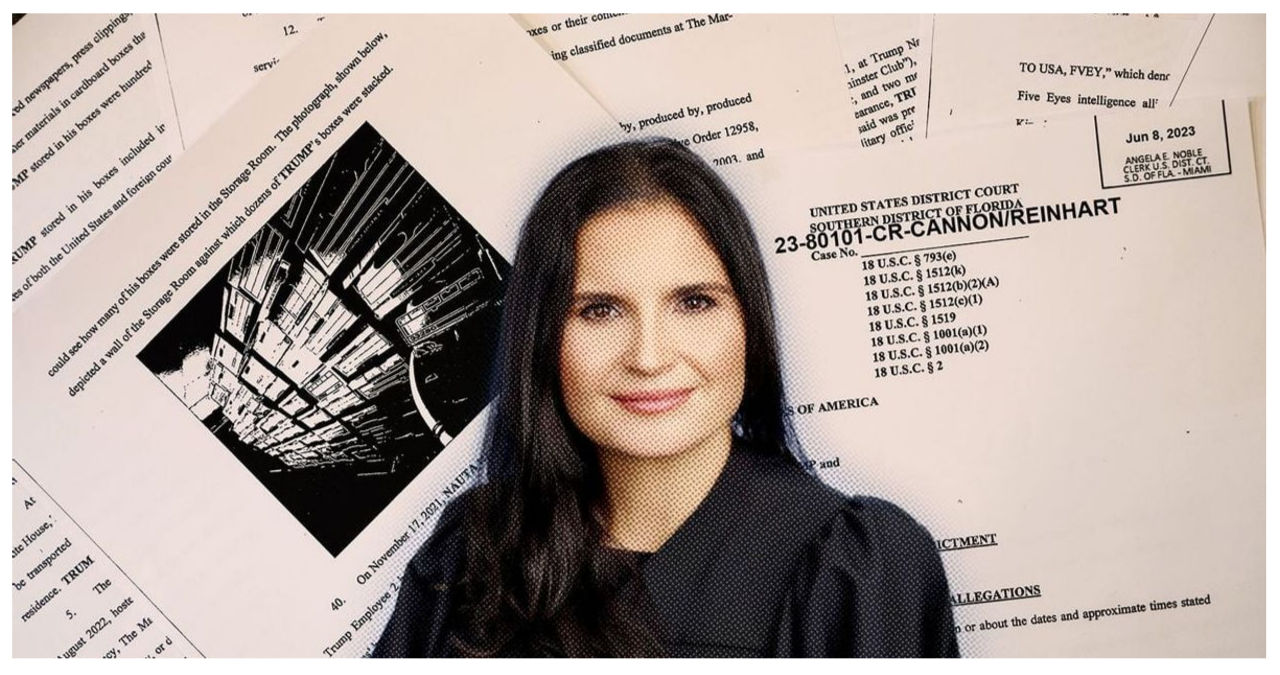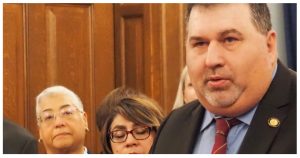Pre-trial proceedings in Donald Trump’s Florida criminal case are taking longer than expected, leading many legal experts to doubt that the case will go to trial this year. There is even concern that it may not go to trial at all.
U.S. District Judge Aileen Cannon, who was appointed by President Trump, is presiding over the case. The case accuses the former president of intentionally keeping national security secrets after leaving office and trying to impede the government’s efforts to recover them. Although two lengthy hearings have taken place this month to discuss the issue, Judge Cannon has not yet set a trial date.
According to the Associated Press, the judge in the case has not made a ruling on several defense motions to dismiss the case. Additionally, there have been disputes over classified evidence that have prolonged the proceedings. Furthermore, the request from Trump’s legal team to release the names of the government’s witnesses remains unresolved. Legal experts have raised concerns about the judge’s recent order regarding end-of-trial jury instructions. This order indicates that the judge is still considering a claim made by Trump about his authority to possess certain documents, despite her previous skepticism towards this claim.
The delays in the progression of the cases can be partially attributed to the frequent legal strategy employed by the presumptive GOP nominee, who is using it as a means to postpone his four criminal cases while he continues his 2024 presidential campaign. However, the case in Florida has reached an unprecedented stage due to the limited number of substantive decisions made by the judge to move the case forward. This raises the possibility that the trial may not take place before the November election.
According to former federal prosecutor Neama Rahmani, Judge Cannon consistently made unfavorable rulings and showed favoritism towards Trump throughout his tenure.
Ever since she was assigned to Trump’s case last year, Judge Cannon has been under significant scrutiny due to her limited experience on the bench. Despite being a former federal prosecutor, her appointment as a judge in 2020 raised questions about her qualifications for such a high-profile case.
According to David Schultz, a legal studies and political science professor at Hamline University, the fact that she seems to have “lost control of the trial” presents a bigger problem than Trump’s frequent delay tactics.
According to Schultz, the issue lies in the fact that Cannon has conducted several hearings but lacks clear directives and seems disorganized. Schultz believes this stems from her being relatively new to the job, as she struggles to maintain control over the courtroom. Trump, in turn, is exploiting this situation to his advantage. Schultz draws a comparison to New York Judge Juan Merchan, who demonstrated a firm and decisive approach by setting a trial date for Trump’s criminal case in Manhattan and reprimanding his legal team for attempting to further delay proceedings.
Rahmani pointed out that Cannon has entertained every frivolous argument raised by Trump, including the search warrants executed at Mar-a-Lago. This refers to Cannon appointing an independent arbiter to examine the records seized by the FBI from the property. However, a federal appeals court panel of judges unanimously reversed this appointment, stating that Cannon had exceeded her authority.
According to Rahmani, the case’s delay is also attributed to the pre-trial discovery phase, which involves the Classified Information Procedures Act (CIPA). He explains that the CIPA Act establishes clear guidelines for the disclosure and admission of classified material as evidence. This requires all parties involved in the case to have the necessary clearance to review the documents. Additionally, access to sensitive materials is limited to a designated and secure facility.
Prosecutors are also seeking “redacted versions” or summaries of the exhibits for jurors in order to keep the document’s intelligence information classified and prevent it from being revealed to the public during the trial, according to him.
Rahmani pointed out that in cases like these, there is often a lengthy back-and-forth process that only serves to further delay the proceedings. He emphasized that Cannon shoulders much of the responsibility for resolving these procedural matters.
According to the AP, the special counsel, Jack Smith, and his team have consistently urged the judge to expedite the case. While they have refrained from mentioning the forthcoming election, they frequently stress the importance of a swift resolution in the public’s interest. They also emphasize the abundance of evidence, including surveillance video, notes from a defense lawyer, and testimonies from close associates of former President Trump, which they believe establishes his guilt.
In Miami last June, Trump and his co-defendant Walt Nauta were arraigned and both entered pleas of not guilty to all charges. Carlos De Oliveira, another co-defendant who was charged in July’s superseding indictment, also pleaded not guilty after his first court appearance in late July.
According to Schultz, in a case like this, the defendants’ arraignment or initial court appearance should be followed by a trial within a year, or possibly even less. He emphasizes that this is crucial to uphold a defendant’s Constitutional right to a fair and speedy trial.
Cannon’s decision-making process in the case has been incredibly slow, causing her to fall behind her proposed timeline and leading to uncertainty among legal experts regarding the final outcome.
Would you like to stay updated with all the news and commentary Salon has to offer on a daily basis? Then why not subscribe to our morning newsletter, Crash Course.
Rahmani predicts that with Cannon’s current handling of the case, the trial won’t take place until 2025 if Trump loses in November. However, if Trump wins, the former federal prosecutor believes that the case will be dismissed due to the Department of Justice’s “long-standing policy” against prosecuting sitting presidents.
Schultz remains optimistic that the case could potentially go to trial before the end of the year. He also holds firm in his belief that there is a chance for Cannon to expedite the process and secure an October trial date, strategically timed just before the election.
In order to achieve this, Cannon should take more control of the case and improve the scheduling process. It is important for him to convene with the parties involved within the next three to four weeks to establish a timeline for discovery and affidavits, as Schultz pointed out.
The question remains whether she will actually do that.
Schultz chuckled as he expressed his skepticism about it. He suggested that she should seek guidance from one of the senior judges to receive advice or mentoring on what steps to take.



